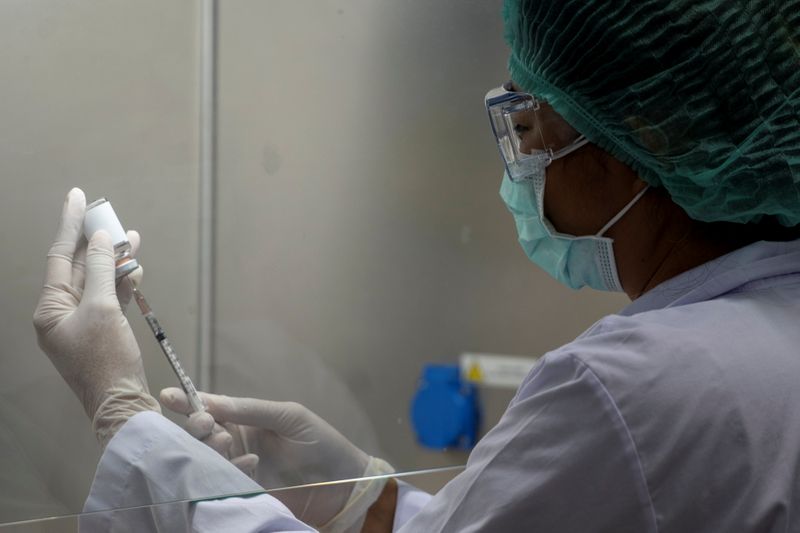BANGKOK (Reuters) – Thailand reported more than 500 cases of coronavirus among migrant workers at the centre of its seafood industry on Saturday, by far the biggest one-day rise in a country that had previously brought the epidemic largely under control.
The outbreak appeared in Samut Sakhon province, southwest of Bangkok, where four infections were reported at a shrimp market on Friday. The first confirmed case was a 67-year-old woman who was a vendor at the market.
Disease Control Department director-general Opas Karnkawinpong told a news conference that 516 new cases were found after testing that included 1,192 migrant workers. More than 90 percent were asymptomatic, he said.
Altogether, more than 550 new cases were reported on Saturday, bringing the total to more than 4,800 with 60 deaths in the country of 70 million – fewer cases than any country with such a large population except Vietnam.
The majority of the migrant workers in Samut Sakhon are from Myanmar, which has suffered a far worse outbreak of coronavirus than Thailand, where health authorities credit early action with limiting the spread of the virus.
“While there is a likelihood of finding more infections in crowded foreign communities around the shrimp market, they are low-risk groups because they are working age and healthy,” Opas said.
The province was ordered closed until Jan. 3 and put under a 10 a.m. to 5 p.m. curfew.
Samut Sakhon Governor Wirasak Wichitsaengsi said the number of infections was more than expected “making it necessary to raise control measures to quickly stop the rapid spread of the epidemic.”
Thailand is among the world’s 10 biggest shrimp exporters.
Nearly 1.9 million Myanmar workers were in Thailand officially in 2019. Another recent outbreak was traced to people who crossed the porous border illegally. Myanmar has registered over 115,000 coronavirus cases and 2,424 deaths.
Other Southeast Asian countries, including Singapore and Malaysia, have also reported thousands of cases among migrant workers.
The surge in cases in Thailand comes just as it is seeking to revive a tourist industry that has been devastated by the epidemic. On Thursday, it eased restrictions to allow more foreign tourists to return.
(Additional reporting by Panarat Thepgumpanat, Satawasin Staporncharnchai, Jiraporn Kuhakan; Editing by Matthew Tostevin, David Evans and Clelia Oziel)






















